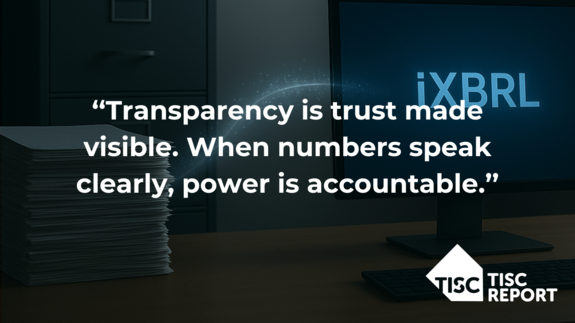When the Corporate Transparency and Register Reform White Paper was published in 2022, the government committed to requiring all company accounts filed with Companies House to be in Inline eXtensible Business Reporting Language (iXBRL) and to be fully tagged. This was framed as aligning the UK with international best practice, ensuring that financial information is machine-readable, comparable, and easier to interrogate.
The Economic Crime and Corporate Transparency Act (ECCTA) 2023 gives Companies House the powers it needs to deliver these reforms. However, the final detail of how “full tagging” will be defined has not yet been encoded into law.
What we know today
- From 1 April 2027, all UK companies, LLPs, CICs and other in-scope entities will be required to file their accounts using commercial software.
- Paper and Companies House web-filing routes for accounts will close.
- iXBRL will be the accepted digital format, as this is the technical standard used internationally and already required by HMRC.
- The White Paper and Companies House statements continue to emphasise the importance of tagging quality, but secondary legislation and Registrar’s Rules setting out what “fully tagged” means in practice are still awaited.
What this means in practice
- iXBRL will be mandatory: Companies will no longer be able to upload PDFs or abbreviated paper filings.
- “Fully tagged” is not yet legally defined: The extent of tagging (e.g. turnover, employee numbers, balance sheet totals versus detailed narrative tagging) has not been set in binding rules.
- Best practice will go further: Companies that ensure their accounts are comprehensively tagged will provide much more usable data — for regulators, investors, supply-chain partners, and transparency platforms like TISCreport.
Our perspective
At TISCreport, we already process iXBRL data where it exists, but the quality is highly variable. For our mission — to assess corporate transparency and regulatory compliance — having the numbers tagged properly makes all the difference.
That is why we will be:
- Continuing to track the rollout of Companies House reforms and the publication of Registrar’s Rules.
- Highlighting companies that adopt best practice iXBRL tagging ahead of 2027.
- Building new features into our Transparency Score to recognise those who go beyond the bare minimum, ensuring that critical datapoints like turnover, employee numbers, and balance sheet totals are consistently tagged and extractable.
What companies should do now
- Plan early: If you file your own accounts, speak to your accountant or software provider to make sure you’ll be ready for software-only filing.
- Understand tagging: Don’t just aim for compliance; aim for transparency.
- Lead by example: Comprehensive tagging is good governance, good risk management, and good for your stakeholders.
The 2027 deadline is fixed. What’s still flexible is whether UK companies will view this as a compliance burden or as an opportunity to build trust and transparency. We’ll be helping to shine a light on those that choose the latter.
